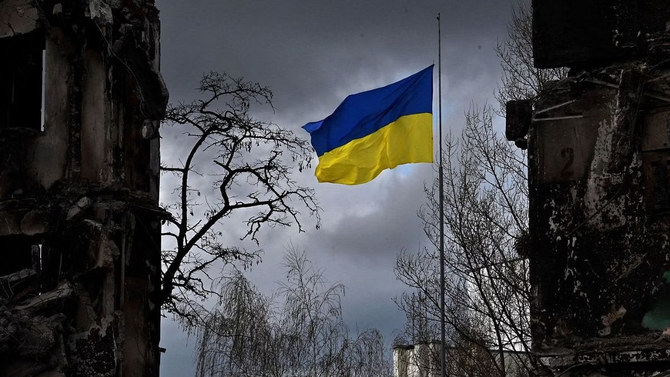
European publics are submitting themselves to emergency measures that resemble the worst excesses of a police state: Citizens punished for leaving their homes or holding small gatherings, parliaments suspended, trials without jury, emergency security laws, electronic surveillance of individuals, the list goes on.
The coronavirus pandemic poses existential questions for the already-precarious vision of a united, democratic and liberal Europe. Many governments introduced legislation reluctantly, under specific recommendations from medical experts. However, there has also been an insidious trend of autocrats exploiting the pandemic to massively expand their personal powers.
Hungary’s Viktor Orban introduced an “omnipotence law,” allowing him to govern without parliamentary approval for as long as he desires, and a bill to sideline local councils in decision-making processes. One European foreign minister noted that Orban’s “dictatorial” regime “belongs in strict political quarantine.” However, an EU statement responding to these measures was only signed off by half of the member states, and failed even to mention Hungary by name.
Poland’s government has revised its electoral law to expedite the rollout of the May presidential elections, assuming that the only candidate able to organize a campaign would be current president Andrzej Duda. Poland, meanwhile, isn’t the only state where measures are in circulation banning doctors from airing criticism of the health care system.
With well over half the world’s coronavirus deaths recorded in Europe, a further divide has opened up between nations like Germany, which have successfully minimized fatalities, and Spain and Italy, each of which are currently seeing about 700 deaths every day.
The global challenges we face are far bigger than can be addressed by any country acting alone
Baria Alamuddin
After a decade of deep austerity measures, the health systems of Italy, Spain, the UK and Portugal have been tested to breaking point by the epidemic. There are dire shortages of medical staff, with more than 60 health care professionals dead in Italy alone. As Spanish morgues and funeral homes overflow, corpses are being stored at a Madrid ice rink.
Southern European nations were already suffering from high debt levels and sluggish economies. Spanish Prime Minister Pedro Sanchez called on the EU to embark on “the greatest mobilization of economic and material resources in history,” perhaps through issuing Europe-wide “recovery bonds.” However, the Germans, Austrians and Dutch are wary of bearing the financial brunt, with memories still raw of the expensive post-2008 bailouts of states like Greece and Italy.
Videoconferences among EU ministers have, at times, deteriorated into bitter slanging matches. The Dutch finance minister queried why some states lacked the financial wherewithal to fight the crisis. The Portuguese prime minister denounced these comments as “repugnant.” Francois Heisbourg, from the International Institute for Strategic Studies, warned of the “enormous resentment” caused by such statements: “You’re an Italian and you’re considered as a plague-bearer by the Germans. This is where the real danger for Europe lies.”
In a major boost to Italy’s far-right, citizens have reportedly burned EU flags to vent their fury at Europe’s failure to support the worst-hit nations. European Commission President Ursula von der Leyen last week apologized to Italy, noting that individual nations had been consumed by their own problems: “They did not realize that we can only defeat this pandemic together, as a union. This was harmful and could have been avoided.”
Despite local outpourings of public-spiritedness, humanitarian sentiments are less visible across national borders. Germany and France initially imposed export bans on essential medical equipment, while Italy pleaded for assistance. TV images of Russia and China airlifting crates of aid to Italy provided grist to the mill of euroskeptics and pro-Moscow propagandists.
Meanwhile, the US has been accused of piracy in its aggressive efforts to monopolize medical supplies worldwide. Germany protested after America diverted 200,000 face masks that had been en route to Berlin from China. France complained that the US had triggered bidding wars in certain strategic marketplaces, including swooping in at the last minute and paying several times the asking price for goods already promised to other states.
The virus has furthermore dealt a vicious blow to the core European principle of free movement. Indeed, Europe’s hesitant and piecemeal approach to closing borders was a major factor in the virus’s global dissemination. In 93 countries, the first recorded cases came from Europe (46 from Italy), with China only directly responsible for 27 recorded first arrivals.
States such as Italy have been unsurprisingly reluctant to allow refugees and migrants to enter. However, this shouldn’t mean allowing hundreds to die at sea. If nations simply close their doors, refugee camps on Europe’s frontiers risk becoming incubators for infinitely worse future bouts of infection.
The post-2016 worldwide explosion of Trumpian populism was distinguished by a backlash against experts and multilateral organizations. Defunding UN institutions and disaster-planning centers left us undefended against a pandemic that rides roughshod across national borders. Transnational entities like the UN, EU and the World Health Organization are inevitably best-placed to mobilize coordinated global responses; ensuring the adequate distribution of essential goods, quarantine efforts, and monitoring the virus’s spread.
Carnegie Europe Director Rosa Balfour emphasized that challenges like pandemics can only be addressed multilaterally, saying: “If the balance tips in favor of national positions, that could kill the EU.” The EU furthermore requires sufficient strength of purpose to rein in national leaders who counterproductively exploit crises for their own interests.
In a recent speech, French President Emmanuel Macron called for a Europe-wide “awakening,” with the EU acting with greater autonomy on international security. Macron’s vision of a strong and autonomous Europe flies in the face of recent continent-wide tendencies, but it constitutes an essential reminder that the global challenges we face are far bigger than can be addressed by any country (even Donald Trump’s America) acting alone.
In the overcrowded viral petri dish of planet Earth, the 2020 coronavirus may be a trial run for infinitely more deadly future pandemics and environmental threats. The ability of nations to learn lessons about the necessity of responsible globalized governance will determine whether civilization survives and flourishes.
*Baria Alamuddin is an award-winning journalist and broadcaster in the Middle East and the UK. She is editor of the Media Services Syndicate and has interviewed numerous heads of state.
Disclaimer: Views expressed by writers in this section are their own and do not necessarily reflect Arab News" point-of-view












